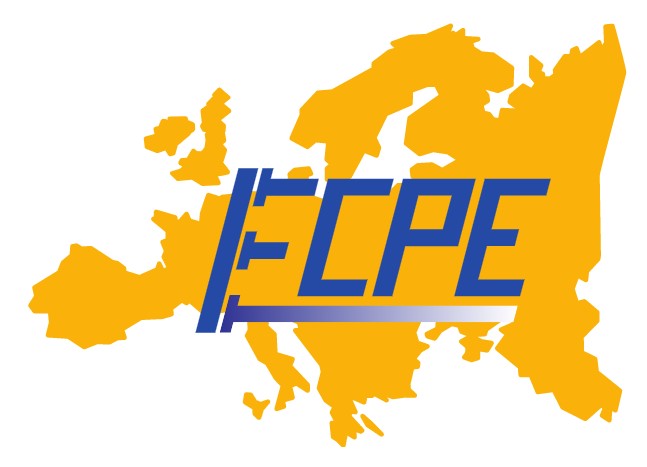The following tutorials are planned for Friday 9 September 2022:
Location:
The tutorials will take place at the Leibniz University of Hannover, Welfengarten 1, 30167 Hannover
TUTORIAL N° 08
Morning
(09:30 – 13:00)
Machine Learning Techniques for Reliable Battery State of Health Estimation
LECTURE ROOM: F 142
- Daniel-Ioan STROE (Aalborg University, Denmark)
- Søren B. VILSEN (Aalborg University, Denmark)
- Xin SUI (Aalborg University, Denmark)

Focus Topic:
Batteries in Power Electronics
Lithium-ion batteries have become a commodity in our daily routine, powering portable electronic devices and electric vehicles, and facilitating renewables’ grid-integration. Nevertheless, the performance of lithium-ion batteries is degradaing during long-term usage. Thus, accurately obtaining the batteries’ state of health (SOH) is critical to prolong the service life of the battery and ensure the safe and reliable operation of the system. Machine learning (ML) techniques are gaining widespread use in the field of electrical engineering as a whole, and for SOH estimation of Lithium-ion batteries in particular. The introduction of ML and statistics in electrical engineering is a consequence of the field slowly subsidising some of the more expensive laboratory testing by using data collected during real-life operating conditions. The main purpose of this tutorial is to provide the audience with a basic understanding of how ML can be applied to ensure reliable and efficient battery SOH estimation.
TUTORIAL N° 11
Full Day
(09:30 – 13:00 & 14:00 – 17:30)
Testing, Design, and Monitoring of Power Electronic Components for Reliability
LECTURE ROOM: F 128
- Francesco IANNUZZO (Center of Reliable Power Electronics (CORPE), Aalborg University, Denmark)
- Amir Sajjad BAHMAN (Center of Reliable Power Electronics (CORPE), Aalborg University, Denmark)

Focus Topic:
New Power Electronic Devices
In this tutorial, after a review of the basic theory of reliability engineering, several approaches for reliability testing of power electronics components will be presented in the first part. Typical pros and cons of power cycling test setups of Silicon and Silicon Carbide devices will be discussed.
In the second part of the tutorial, loss calculation in a power electronic component as well as the well-established methods for the extraction of an equivalent thermal network of a real power stack will be presented.
Condition monitoring is an emerging topic in reliability engineering, therefore, the third part is devoted to illustrating the state of the art techniques both for junction temperature- and damage estimation.
The tutorial is concluded with an overview of the novel and promising methods for mission-profile-based prediction of Remaining Useful Life (RUL) and a summary and prospects for research on the reliability of power electronics.
TUTORIAL N° 15
Full Day
(09:30 – 13:00 & 14:00 – 17:30)
High-Performance Model Predictive Control of Power Electronic Systems
LECTURE ROOM: B 302
- Tobias GEYER (ABB System Drives, Switzerland)
- Petros KARAMANAKOS (University of Tampere, Finland)
Power electronic systems are often underutilized with conventional control solutions and are being operated in a suboptimal manner. An attractive control alternative is model predictive control (MPC) due to its numerous advantages, such as explicit inclusion of design criteria and restrictions, design versatility, and inherent robustness. Thanks to these features, MPC can bring significant benefits by improving performance metrics (e.g., current distortion, power losses, settling time), and/or reducing the hardware requirements (or, equivalently, by fully utilizing the existing hardware).
Motivated by the above, the objective of this tutorial is to show the performance improvement that can be achieved with control algorithms designed in the framework of MPC. To this aim, different MPC methods (control problem formulations) will be discussed and analyzed. Moreover, it will be shown how these MPC strategies can bring tangible improvements, such as lower harmonic distortions, hardware reduction, increased efficiency, or increased output power. Furthermore, implementation-related issues will be analyzed, while methods to tackle them will be presented. In doing so, insight into the MPC-based algorithms and the associated challenges will be provided.
Overall, the tutorial aims at providing a balanced mix of theory and application-related material. Special care is taken to ensure that the presented material is intuitively accessible to the power electronics practitioner. This is achieved by augmenting the mathematical formulations by illustrations and simple examples.
By the end of the tutorial, the attendees will:
- understand the standard and emerging MPC methodologies, their design and real-time implementation as well as suitable embedded system architectures to implement them and to solve the underlying optimization problems,
- be able to understand what design options exist that maximize the system performance and how MPC-based controllers are to be designed to outperform conventional control techniques and to push the system performance to its physical limits, and
- appreciate the industrial relevance and benefits of MPC-based controllers.





